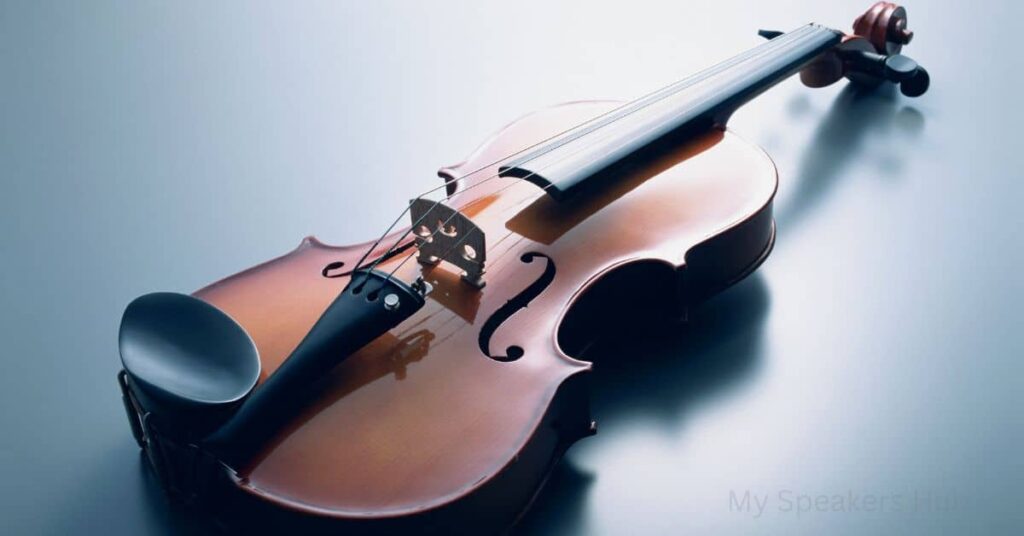You’ve wondered whether electric violins need rosin, the answer is yes! Rosin helps create friction between the string and the bow, which is essential for producing sound on any violin. Electric violins may have synthetic or metal strings that don’t require as much rosin as traditional gut strings, but a small amount is still needed to produce a good sound.
What is Rosin
Rosin is a solid form of resin that is obtained from pine trees. It is used in the production of varnishes, adhesives, and inks. Rosin is also used as a soldering flux, and as an ingredient in some musical rosin.

Rosin Help with Electric Violins
Rosin helps with electric violins by providing a smoother, more consistent sound. It also allows the player to control the bow with more precision and accuracy.
Different Types of Rosin
Rosin is a solid form of resin that is derived from pine trees. It is used in a variety of industries, including the production of adhesives, inks, and varnishes. Rosin can be either pale yellow or dark brown in color, and is typically sold in the form of flakes, powder, or blocks.
Choose the Right Rosin for Your Electric Violin
There are a few things to consider when choosing the right rosin for your electric violin. The first is the hardness of the rosin. Harder rosins are better for electric violins because they provide more friction, which is necessary for producing a good sound. The second is the amount of rosin you need. More rosin is necessary for electric violins because the strings are under more tension and produce more sound. Finally, you need to consider the price. Rosin ranges in price from around $5 to $30, so it’s important to find one that fits your budget.
Apply Rosin to Your Electric Violin
To apply rosin to your electric violin, first make sure that the rosin is at room temperature. If it is too cold, it will be difficult to apply evenly. Next, hold the rosin in your left hand and the violin in your right hand. Place the rosin on the strings near the bridge and then rub it back and forth until the rosin is evenly distributed. Be sure to apply pressure so that the rosin will adhere to the strings. Finally, use a soft cloth to wipe away any excess rosin.
Store Rosin for Your Electric Violin
Rosin is a solid substance that is used to create friction between the bow and the strings of a violin. It is important to store rosin in a cool, dry place to prevent it from melting or becoming too hard.
When storing rosin, it is important to keep it in an airtight container. A glass jar with a tight-fitting lid is ideal. If you are using a commercial rosin, it is also a good idea to keep it in the original packaging.
Rosin can also be stored in the refrigerator, but it is important to bring it to room temperature before using it. This will prevent the rosin from shattering when it comes into contact with the strings.
If you are not using your violin for an extended period of time, it is a good idea to remove the rosin from the strings. This will prevent the rosin from hardening and becoming difficult to remove.
Frequently Asked Questions[FAQs]
Do electric violins need rosin?
No, electric violins do not need rosin. The strings on an electric violin are not made of gut, so they do not need rosin to produce sound.
What kind of strings should I use on my electric violin?
There are a variety of strings available for electric violins. The type of string you choose will depend on your personal preference and playing style.
How do I change the strings on my electric violin?
Changing the strings on an electric violin is similar to changing the strings on a regular violin. First, remove the old strings and discard them. Next, thread the new strings through the appropriate holes in the violin’s body. Finally, tune the strings to the correct pitch.
How do I care for my electric violin?
You should clean your electric violin regularly with a soft, dry cloth. You may also need to occasionally wipe down the strings with a damp cloth to remove any buildup of rosin or other residue.
What are the benefits of playing an electric violin?
Electric violins offer a number of advantages over traditional acoustic violins. They are typically lighter and easier to hold, and they produce a louder, more consistent sound. Additionally, electric violins are less likely to feedback when amplified, making them ideal for use in a band or orchestra setting.
Are there any disadvantages to playing an electric violin?
The main disadvantage of electric violins is that they require batteries or an external power source in order to function. Additionally, electric violins can be more expensive than acoustic violins.
Can I use an electric violin with a regular violin bow?
No, you cannot use a regular violin bow with an electric violin. The bow hair will not grip the strings properly, and you will not be able to produce a sound.
Do electric violins come in different sizes?
Yes, electric violins are available in a variety of sizes to accommodate different players. You should choose a size that is comfortable for you to hold and play.
Conclusion
Based on the article, it seems that electric violins do not need rosin. Rosin is only needed for acoustic violins in order to create friction between the bow and the strings. Electric violins do not need this extra friction because they have a different way of producing sound.


